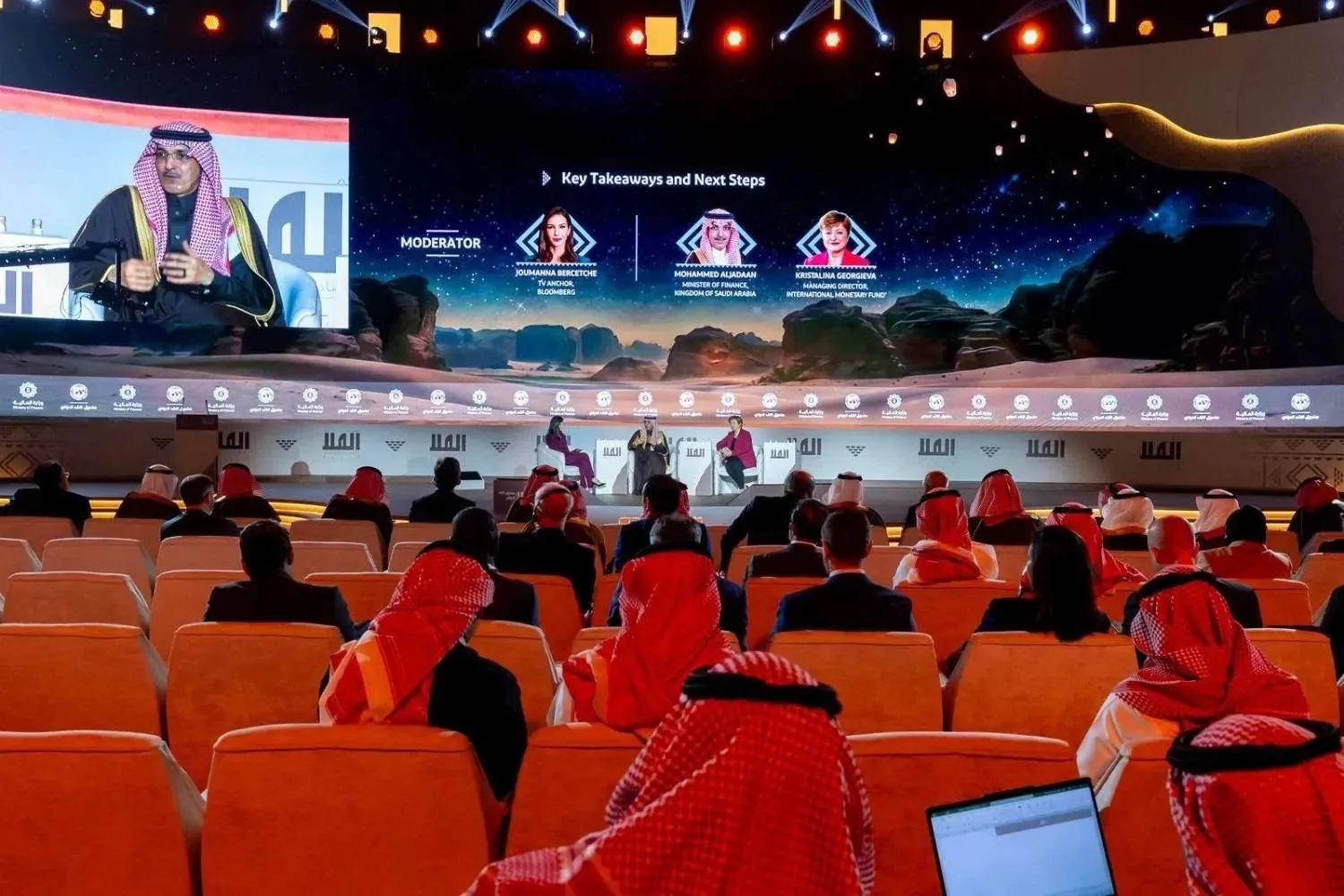The “AlUla Conference for Emerging Market Economies” was held at a crucial time, as the world and the region face significant economic, technological, and geopolitical shifts.
From tariffs that will impact international trade to the resurgence of inflation concerns and the resulting delay in expected interest rate cuts, the strengthening dollar and its effects on emerging markets, to the growing geopolitical conflicts—these and other factors undoubtedly have far-reaching consequences for emerging economies.
The conference, organized by the International Monetary Fund (IMF) and the Saudi Ministry of Finance, “marks an important step towards creating a platform that amplifies the voices of emerging economies on the global stage, allowing them to express their views and needs," said Finance Minister Mohammed Al-Jadaan at the conclusion of the two-day event.
Sources told Asharq Al-Awsat that the conference is expected to have a significant impact on shaping future economic policies in emerging economies.
This was evident through in-depth discussions among finance ministers, central bank governors, policymakers, and leaders from both the public and private sectors in emerging economies, as well as international institutions.
The talks covered a range of topics, from economic growth and financial stability to sustainable development, inflation, debt, and proposed strategies to support growth in these markets.
Saudi Arabia’s hosting of the event underscores its prominent position and leadership role both regionally and globally. It also highlights the Kingdom’s commitment to supporting emerging economies and fostering cooperation among them.
Emerging economies undeniably play a key role in the global economy, driving 65% of global growth.
They continue to record strong growth rates, with the IMF projecting a 4.3% growth in 2025 and 4.2% in 2026, compared to a global economic growth of just 3.3% during the same period.
This translates into higher employment rates and increased consumer spending, positioning these economies as attractive destinations for investors seeking major opportunities.









